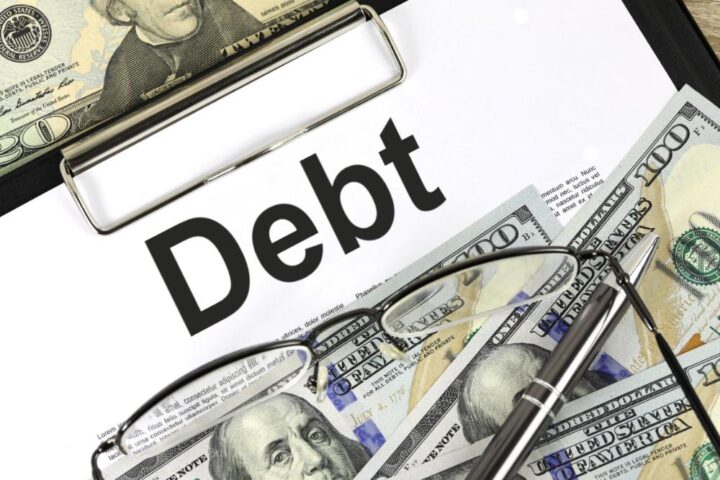Get your shopping lists ready—Massachusetts’ annual sales tax holiday is happening Saturday, August 9 and Sunday, August 10, 2025. During these two days, shoppers can purchase most retail items without paying the state’s 6.25% sales tax, offering welcome relief during a time when consumer prices continue to climb.
What You Need to Know About This Year’s Tax Break
Massachusetts shoppers look forward to this August tradition, which became permanent through legislation in 2018. The tax holiday provides dual benefits: consumers save money while local businesses see increased foot traffic during what’s typically a slow retail month.
“The sales tax holiday is a wonderful opportunity for our residents to get out into their communities, support local businesses, get their kids ready for school in fall or make a purchase that they’ve been putting off,” said State Senator Adam Gómez, Senate Chair of the Joint Committee on Community Development and Small Businesses.
A recent Deloitte back-to-school survey found that U.S. parents plan to spend about $570 per child on average in 2025, with many prioritizing mass merchants and discount retailers. The tax holiday offers a chance to stretch those dollars further.
What Qualifies for Tax-Free Shopping?
The tax exemption applies to most retail items priced at $2,500 or less per item when purchased for personal use. Here’s what you need to know:
- Each item must be $2,500 or less to qualify
- You can buy multiple items in one transaction, even if the total exceeds $2,500
- The exemption only applies to personal purchases, not business purchases
- Online purchases qualify if ordered and paid for during Eastern Daylight Time on August 9-10, even if delivery occurs later
Special Rules for Clothing
Massachusetts normally exempts clothing items priced at $175 or less from sales tax year-round. During the tax holiday weekend, the rules change:
- If a clothing item costs $2,500 or less, the entire purchase is tax-free
- If a clothing item exceeds $2,500, only the first $175 is exempt from tax
- This means a $200 jacket that would normally be taxed on the amount over $175 will be completely tax-free during the holiday
What’s Not Included?
Not everything qualifies for the tax break. These items remain taxable even during the holiday weekend:
- Meals at restaurants
- Motor vehicles and motorboats
- Gas, electricity, and telecommunications services
- Tobacco products
- Marijuana and marijuana products
- Alcoholic beverages
- Any single item priced over $2,500
More Shopping Conditions to Know
Several special conditions apply that shoppers should know about:
- Layaway sales don’t qualify – Items placed on layaway before or during the weekend aren’t eligible for the tax break
- Rentals can qualify – Rentals of 30 days or less are eligible if paid in full during the weekend (excludes vehicle and boat rentals)
- Store & manufacturer coupons/discounts at checkout count – If a store or manufacturer coupon/discount applied at the time of sale brings the item’s price to $2,500 or less, it qualifies. Post-sale rebates don’t reduce the sales price for the threshold.
- Prior deposits disqualify purchases – If you made a binding deposit before the weekend, the purchase doesn’t qualify, even if you complete payment during the holiday
- All retailers must participate – Participation is mandatory for all Massachusetts businesses open during the weekend that normally collect sales tax
What If You’re Charged Tax by Mistake?
If a retailer mistakenly charges you sales tax during the holiday weekend, they must refund it. You’ll need to provide your receipt or other proof of purchase to claim your refund. Retailers who have already submitted the tax to the state can file an amended return.
This is particularly important to know as some shoppers have experienced issues with refunds in other contexts, similar to the Amazon refund lawsuit where customers faced challenges getting proper refunds for returned items.
Economic Impact Beyond Individual Savings
According to the Department of Revenue, the 2024 sales tax holiday generated approximately $3.54 million in indirect tax revenues through increased economic activity. The holiday provides a significant boost to local retailers during the traditionally slow August period.
“Lowering costs for Massachusetts residents and supporting our local businesses remains essential to our communities. We are proud to once again work on a bipartisan basis to schedule the dates for this year’s sales tax holiday,” said Senate President Karen E. Spilka.
Recent federal tariff actions include raising EV tariffs to 100% (2024) and semiconductor tariffs to 50% (2025) under Section 301. The impact of tariffs has been particularly pronounced on certain products. For example, with JLR’s profits facing tariff caps and Kia’s EV pricing affected by tariffs, consumers may find the tax holiday especially valuable for electronics and other imported goods.
Smart Shopping Strategy
To make the most of the tax-free weekend:
- Research big-ticket items in advance to ensure you’re getting the best base price
- Make a list of qualifying purchases you’ve been delaying
- For online shopping, complete your purchases during Eastern Daylight Time on August 9-10
- Keep receipts in case you need to request a tax refund
- Look for retailers offering additional discounts to maximize savings
When shopping, be mindful of any recent product recalls or safety issues. For instance, certain kitchen step stools have been recalled, and there have been alerts about contaminated coffee pods and deodorant products.
Ready to Shop?
Massachusetts’ tax-free weekend presents an excellent opportunity to save on everything from back-to-school supplies to furniture and electronics. By understanding the rules and planning ahead, shoppers can make the most of this annual money-saving event.
For those living near state borders, it’s worth noting that New Hampshire has no general sales tax year-round, which might be an alternative shopping destination. However, for Massachusetts residents, this weekend offers a rare chance to shop locally without the added tax burden.
Recent policy changes in other states, such as New York’s ban on PFAS in consumer goods and debates over transit funding in Oregon, highlight how tax and consumer policies can significantly impact shoppers. Massachusetts’ tax holiday represents a consumer-friendly policy that benefits both shoppers and businesses.
Remember, the holiday applies to purchases made on August 9-10 (Eastern Daylight Time). Happy shopping!



















